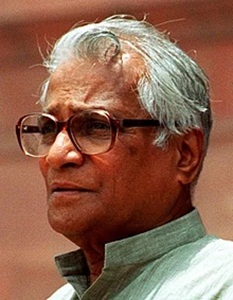George Fernandes: the end of a fiery, colourful leader
29 Jan 2019
Former defence minister, fiery trade union leader and socialist veteran George Fernandes passed away on Tuesday morning at his home in Delhi. He was 88.

Former defence minister, fiery trade union leader and socialist veteran George Fernandes passed away on Tuesday morning at his home in Delhi. He was 88.


Intel and AMD server CPU shortages are hitting China as AI data center demand surges, pushing lead times to six months and driving prices higher.

India's Budget 2026-27 targets fiscal discipline with record capex as markets tumble, the rupee weakens and manufacturing struggles to regain momentum.

As AI server density surges in 2026, data centers face a new bottleneck deeper than chips — the massive water demand required for cooling next-generation infrastructure.

Airspace bans, sanctions and corridor risk are forcing airlines into costly detours in 2026, raising fuel burn, reducing aircraft utilisation and pushing airfares higher worldwide.

India’s data centre boom is turning into an AI arms race where power contracts, liquid cooling and fast commissioning decide the winners across Mumbai, Chennai and Hyderabad.

India’s refiners are rebalancing crude sourcing as Russian imports fell to a two-year low in December 2025, lifting OPEC’s share and raising geopolitical risk concerns.

Greenland-linked tariff threats have injected fresh uncertainty into transatlantic trade, triggering a risk-off shift in markets and reshaping global supply chain planning.

Friend-shoring is reshaping lithium, rare earth and graphite supply chains, creating a resilience premium and new winners and losers in clean tech.

Can magnet recycling and rare-earth-free motors reduce global dependence on strategic minerals? Part 4 explores breakthroughs, limits and timelines.